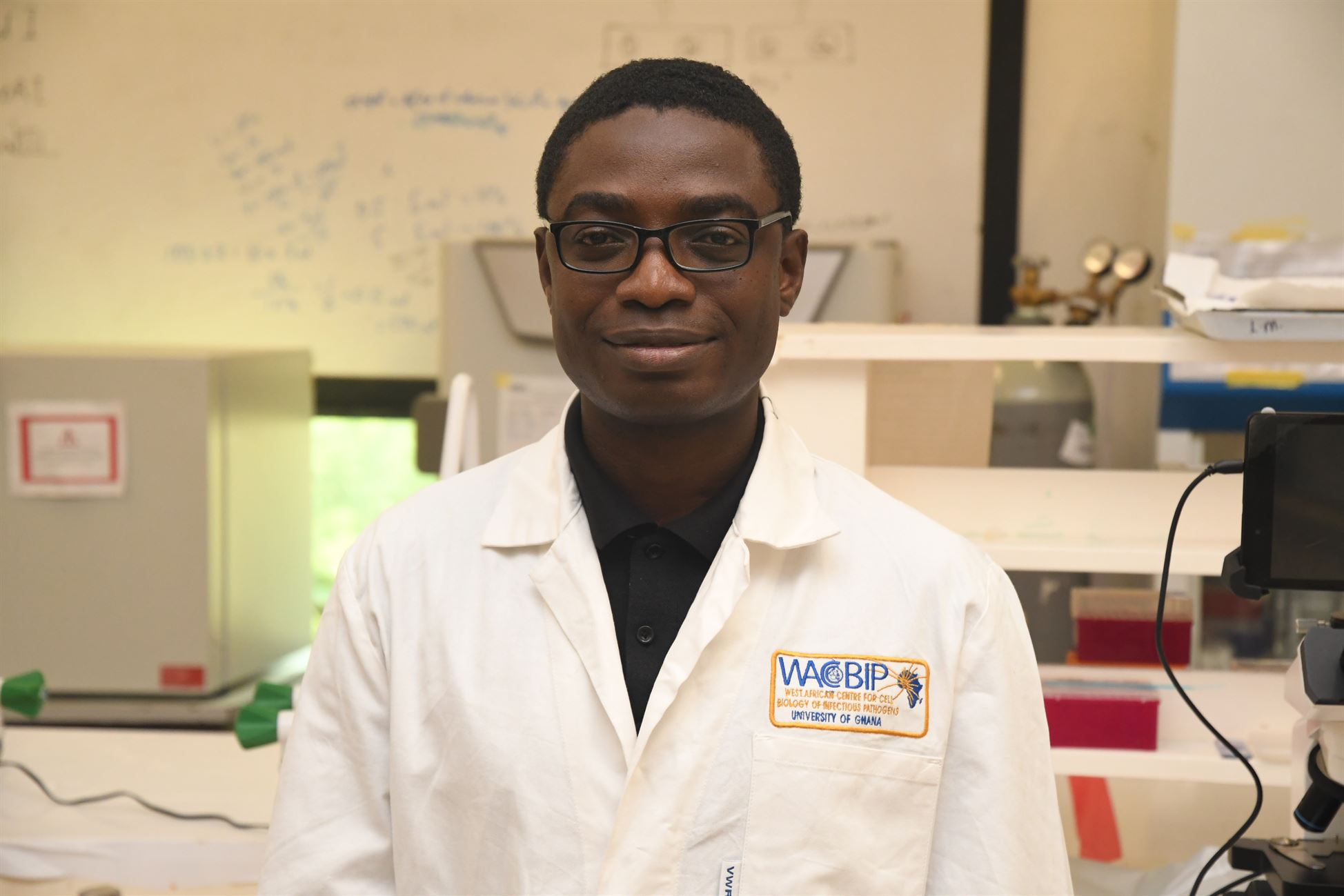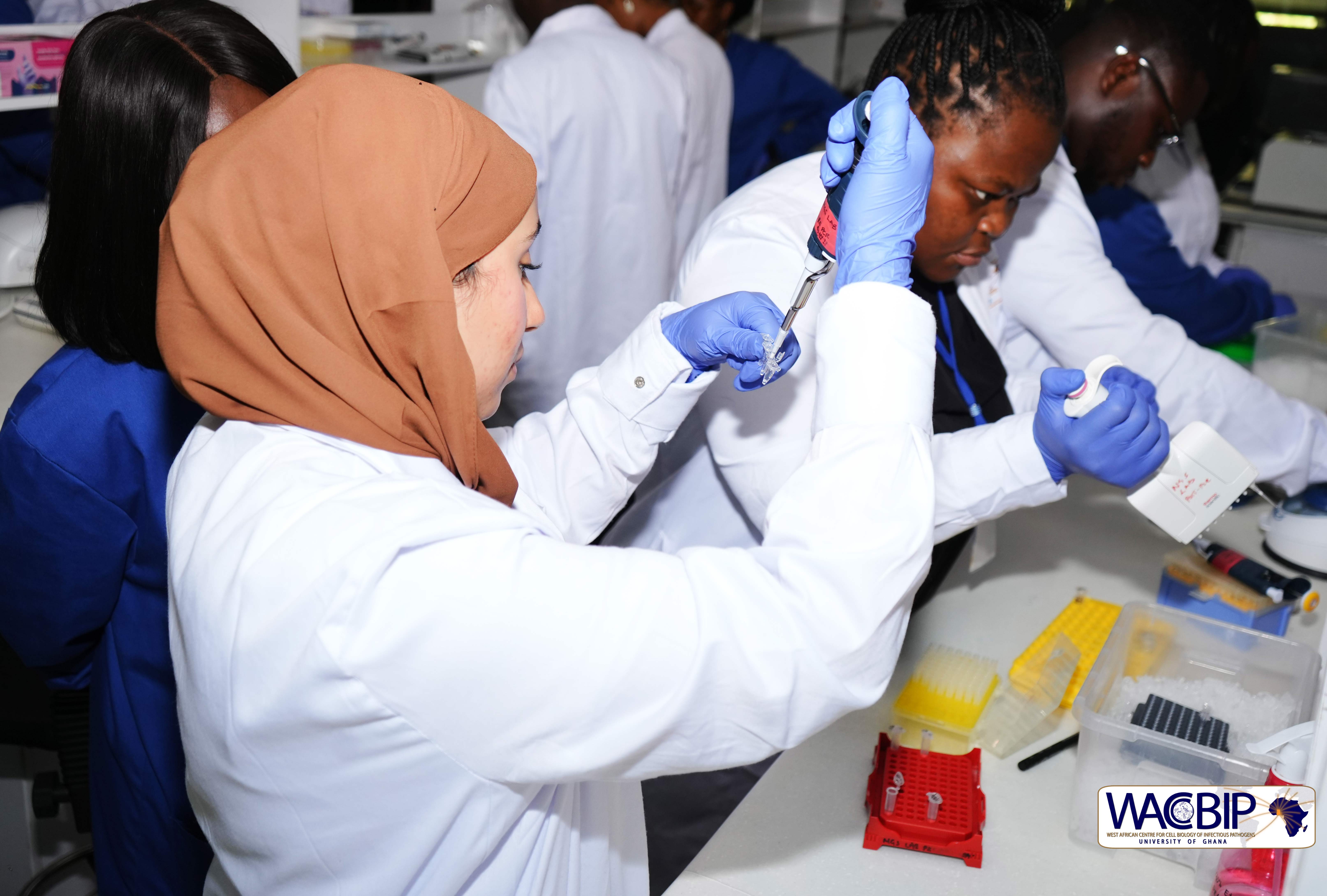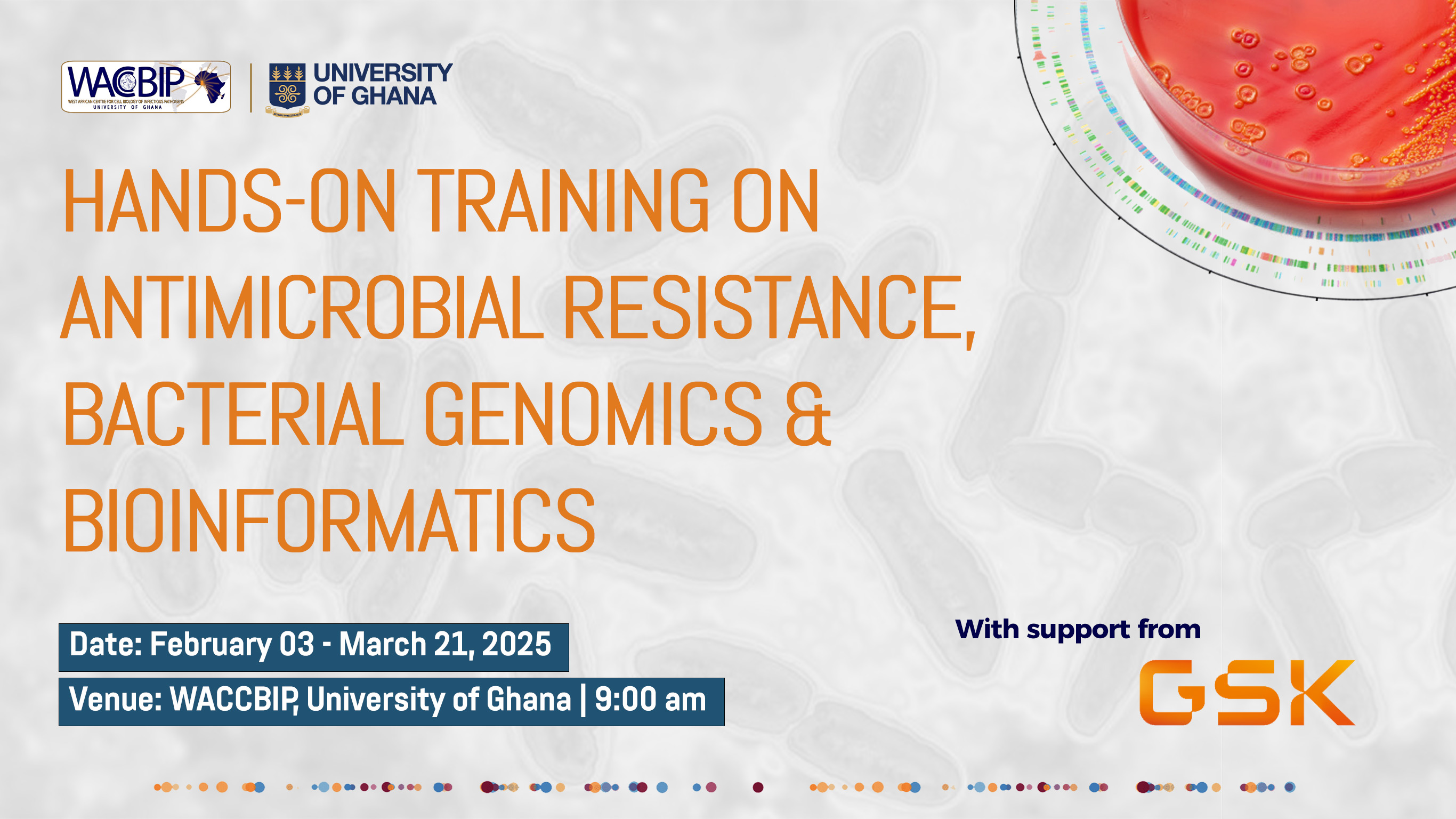AMR RESEARCH GROUP
How do bacteria exhibit resistance to antimicrobials? Our group addresses this question by determining the subtle and molecular mechanisms of antimicrobial resistance. We study bacterial strains described as critical priority (ESKAPE) and emerging Pan-African-resistant pathogens that cause severe human and nosocomial infections. The Group is primarily active within the Cell and Molecular Biology Lab.
ABOUT THE GROUP
This group is led by Dr. Abiola Isawumi, a Research Fellow and Faculty at WACCBIP. He has a PhD in Molecular Cell Biology of Infectious Diseases, an MPhil in Microbiology and Molecular Genetics, an MSc in AMR Technology and International Health and a BSc in Microbiology. Dr. Abiola is a trained Microbiologist, an applied Bacteriologist, certified research coach, and academic mentor. You can check his complete profile here - https://www.linkedin.com/in/isawumi-abiola-phd-bb6a5a5a/
Overall Group Vision
Our grand intention is to build a strong and dream team that will make God and all of us proud. God is the greatest scientist, and we are the extension of His expression.
Research Vision Guide
Redefining AMR concepts to reshape research culture in Africa.
What We Believe
Every trainee is a potential research leader and global change agent; with mutual commitment, their dreams can become reality.
Our Mantra
Until it is excellent, it is not right.
Our Strategy
Shunning limiting definitions of success through excellent character development, acquisition of adaptable/transferable skills and building consistent relevance beyond research and degree.
If you want to acquire transferable skills and build consistent relevance guided by excellent character while fulfilling your research dreams, then come join our group—we are unconventionally bold thinkers.
We train and tend to transform
We’ve got a blend of expertise and experience. We think boldly beyond traditions, bars, and limitations. We are always interested in creative, talented, highly motivated, and passionate interns, undergraduates, exchange students, graduate students, and postdocs with the ability to excel in a dynamic research and academic environment. We have research opportunities in the listed projects (1–13 open for discussions). We are also open to new ideas and collaborative projects. Are you thinking of a mobility fellowship or small grant to facilitate a research visit to our lab, we are open to discussing this opportunity and making it a reality.
Interested candidates and prospective students can send a cold email to amrgroup.waccbip@gmail.com or contact our Group Leader and Principal Investigator Dr. Abiola Isawumi directly on LinkedIn @isawumiabiola. You can as well follow our page on twitter - https://x.com/AMR_WACCBIP or our Blog Substack Page - https://amrgroupwaccbip.substack.com/
Research Focus and Projects
How do bacteria exhibit resistance to antimicrobials? Our group addresses this question by determining the subtle and molecular mechanisms of antimicrobial resistance. We study bacterial strains described as critical priority (ESKAPE) and emerging Pan-African-resistant pathogens that cause severe human and nosocomial infections. We connect the dots to bridge the bias gaps between environmental and clinical bacteria to provide in-depth clarity on the magnitude of AMR challenges. To address this overarching question, our group focuses on the interconnected concepts of AMR highlighted below:
Project 1
The challenge of AMR is compounded by limited information on its mechanisms; our group is trying to investigate the interplay of phenotypic and molecular factors to establish AMR mechanisms. We study how conditional stress (temperature, pH, osmotic pressure, nutrient deprivation, salinity, heavy metals, etc.) influences bacterial AMR, tolerance, persistence, histamine production, sporulation, and capsulation. Also, we investigate how these conditions lead to modifications in lipopolysaccharides as the molecular basis for colistin resistance.
Project 2
Hetero-resistance is a new trait of antimicrobial resistance. It involves a more resistant sub-population of bacteria within the overall bacterial population; while the clinical significance is unclear, it is indicated that hetero-resistant variants might be contributing to therapeutic failures and increasing infection severity. Our group provides clarity into hetero-resistance and associated mechanisms.
Project 3
Biofilm formation and motility are two inseparable phenotypic properties of antimicrobial-resistant bacteria. While they both increase bacterial levels of resistance to conventional and last-resort antibiotics, the interplay of motility-biofilm AMR mechanisms is unclear. Our group understands how motility-biofilm interplay is moderated by shared or plasmid-mediated genes and how the association is regulated by quorum sensory and transcriptional expression factors.
Project 4
Bacteria leverage virulent factors for defense and territorial dominance. Our group is understanding other bacterial complementary virulence factors, especially T6SS and toxin-antitoxin systems, to elucidate the mechanisms of antimicrobial resistance.
Project 5
Potentiating antibiotic effectiveness with small molecules: Understanding the AMR mechanisms is as important as developing sensitive protocols and techniques with potential ‘antimicrobial potentiators’ to limit the severity associated with AMR infections and to enhance its delivery to the right target within the bacterial cells. Our group utilizes different molecules and cations to strengthen the effectiveness of antibiotics against resistant bacteria. We also study how antimicrobial combination therapy contributes to AMR evolution and patients' outcomes.
Project 6
Bacteriophages have a unique property that allows them to destroy bacterial membranes, cell walls, and LPS. Since microbes hardly live in isolation, our group is isolating natural phages to intercept AMR pathways, as an antimicrobial tool, antibiotic efflux deactivator, and for therapeutic and diagnostic purposes to limit the effects of AMR.
Project 7
Our group is synthesizing biological and cationic-conjugated nanoparticles to increase antibiotic effectiveness. Also, for effective antibiotic delivery against multidrug-resistant bacteria.
Project 8
We presently have a collaborative project committed to tackling antimicrobial resistance by developing anti-ESKAPE pathogen vaccines.
Project 9
Development of plasmid-based interference assays and tools for resistance curing and interception of AMR pathways. We are also profiling plasmid types and detecting high-risk plasmids with multiple resistance genes that can possibly facilitate AMR outbreaks in intensive care units.
Project 10
We are establishing transmission dynamics of ESKAPE pathogens in the intensive care units to understand the process of nosocomial infections.
Project 11
Harnessing Machine Learning and AI (i.) for detections of resistant bacteria, (ii) for Identification of druggable Molecular Targets (iii) Estimation of effective antibiotic concentrations (iv) for AMR mitigation in ESKAPE Pathogens.
Project 12
Establishing Galleria mellonella Infection Unit: Carrying-out infection experiment and determining the immunological roles of virulent biomarkers in vivo-in vitro and vice versa is essential to pathogenic index of resistant bacteria. Animal models such as mice are the golden standard for virulence and infection studies, however expertise, time, ethics and cost make the model very challenging for/to use. The utility of non-mammalian model systems such as the Galleria mellonella (wax moth) has demonstrated reliable and accurate studying of pathogenesis of bacterial infection. Galleria usage is easy, cheap and no ethical approvals are required, however it is not commonly used in Africa. Establishing a Galleria unit at WACCBIP would ease access to alternative infection models and further facilitate hypothesis-driven research into strain virulence and pathogenicity.
Flagships and Expressions
- Heroes without capes – a bimonthly interactive event with professionals and researchers making impactful strides.
- Street Science – An engaging easter program to practically express and share love with people we ‘conduct research about’.
- Research-Meets-Industry – Exploring the business side of research; helping our trainees to turn their skills into profitable career with financial intelligence.
- Beyond The Campus – Translating research skills into goods and services; from holding pipettes to becoming research-shareholders and entrepreneur.
- AMR Club and Hubs – Creating AMR hub in form of a club in citadels of learning (University, Colleges, SHS, JHS, NGOS, STEM).
- AMR Awareness Program – A one-month educational programs on AMR to empower the next generation of AMR fighters.
- AMR Workshops – We organize and facilitate different AMR meetings and workshops
- AMR-CAST – AMR vlogging to showcase our studies
Lab Structure

Dr. Abiola Isawumi
Group Members
Our group consists of talented and passionate PhD, MPhil and Undergraduate students, Research Staff, Research Assistants, National Service Personnel and Laboratory Manager. We're also home to Research and Project Interns, Visiting and Exchange Students.
We take pride in collaboration as the new definition for competition. We leverage the expertise of our diverse collaborators around the world to achieve our research dreams. We are also open to partnerships and collaborations that can strengthen our research and add relevant values to our trainees.
We have the technical ability to express and interpret dreams. We achieve this through idea repatterning, protocol development, experimental designs, and laboratory set-up. Additionally, we facilitate research and training workshops aimed at building local capacity for NGOs, institutions, personnel, and students.





